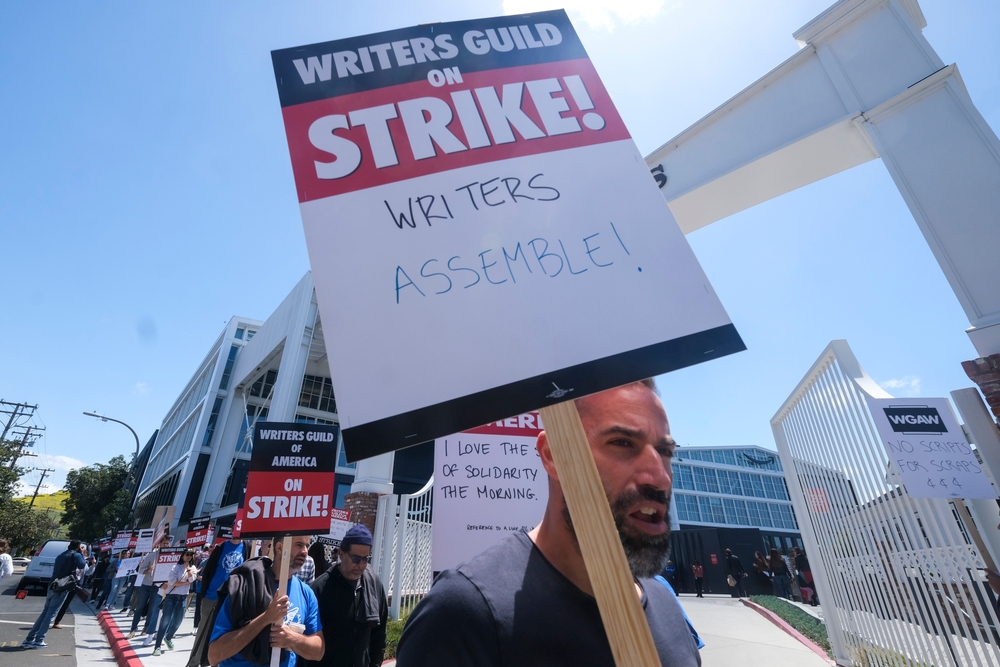The Hollywood SAG-AFTRA actors strike has seized the headlines, but let’s not forget that the Writers Actors of America (WGA) were the first to take action.
Writers are speaking out to reinforce their instrumental role in the TV and entertainment industry.
Michelle Amor, a well-known Hollywood screenwriter, voiced her worries about the possible influence of AI on her craft. “I don’t want to be replaced with something artificial,” she states.
The WGA strike began in May, where Amor and fellow US film and TV writers are pushing for studios and streaming services to restrict the future use of AI-powered writing tools.
The WGA union demands assurances that AI will only be used for research purposes, not as a replacement for human writers. “We writers are the heart and soul of this entire industry. No one works until we do – everyone knows it,” argues Amor.
Melissa Rundle, another screenwriter, shared Amor’s sentiment. “AI doesn’t have childhood trauma. As writers, we are creating stories that touch people and oftentimes digging deep into our soul – this is storytelling at its most sacred and should never be robbed by a machine,” she explains.
Others, such as Elliott Kalan, fear the misuse of AI but acknowledge it has some positive uses, such as organizing information or communicating ideas.
Views from studios
Scott Rowe, a spokesperson for The Alliance of Motion Picture and Television Producers (AMPTP), which represents media and streaming giants such as Disney and Netflix, acknowledges writers’ concerns.
“We’re creative companies and we value the work of creatives,” he told the BBC, continuing, “For example, writers want to be able to use the new AI technology as part of their creative process, without changing how credits are determined, which is complicated given AI material can’t be copyrighted. So it’s something that requires a lot more discussion, which we’ve committed to doing.”
The SAG-AFTRA and WGA strike has become somewhat of a ground zero for the creative industries – a litmus test that will instruct other similar unions whether they can win one over on their bosses and, by extension, AI.
However, studios have been cutting costs in recent months and years, and AI offers a gilt-edged opportunity to drive efficiency.
While current AI large language models (LLMs) such as ChatGPT and Bard are probably limited in creating highly authentic, creative content, this will likely change in the near future.
Then, studios will have to decide who to cut loose – humans or AI?





